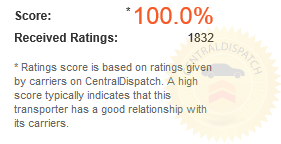An estimated $51 billion has been spent on the Sochi Winter Olympics, one of the priciest Olympics in history. A good percentage of this high cost this year is shipping the equipment and goods to the games in Russia.
From a logistical standpoint the Winter Olympics is a huge freight and shipping disaster. The goods needed will be shipped by sea, air, rail, and land and all transportation routes will be monitored by the Federal Customs Service.
Most of the goods include sporting equipment, firearms, hospitality goods, broadcast equipment, computer equipment, and awards. The logistical numbers for shipped freight are immense. To handle this huge shipment, the 2014 Sochi Organizing Committee has appointed an official freight forwarder for freight access to Sochi to ensure the efficiency of this transport.
Once all goods and equipment clear through customs, the freight is loaded on the Russian Railways train and shipped to one of two distribution centers based on the type of freight. This distribution center will be the central hub of all Olympics’ logistics operations. From the distribution centers, all the freight will be organized and available for use. Every piece of freight requires shipping documents.
The huge amount of products needed to ship were difficult to manage and problems did arise, the Olympics had a rocky start, but a start nevertheless.



